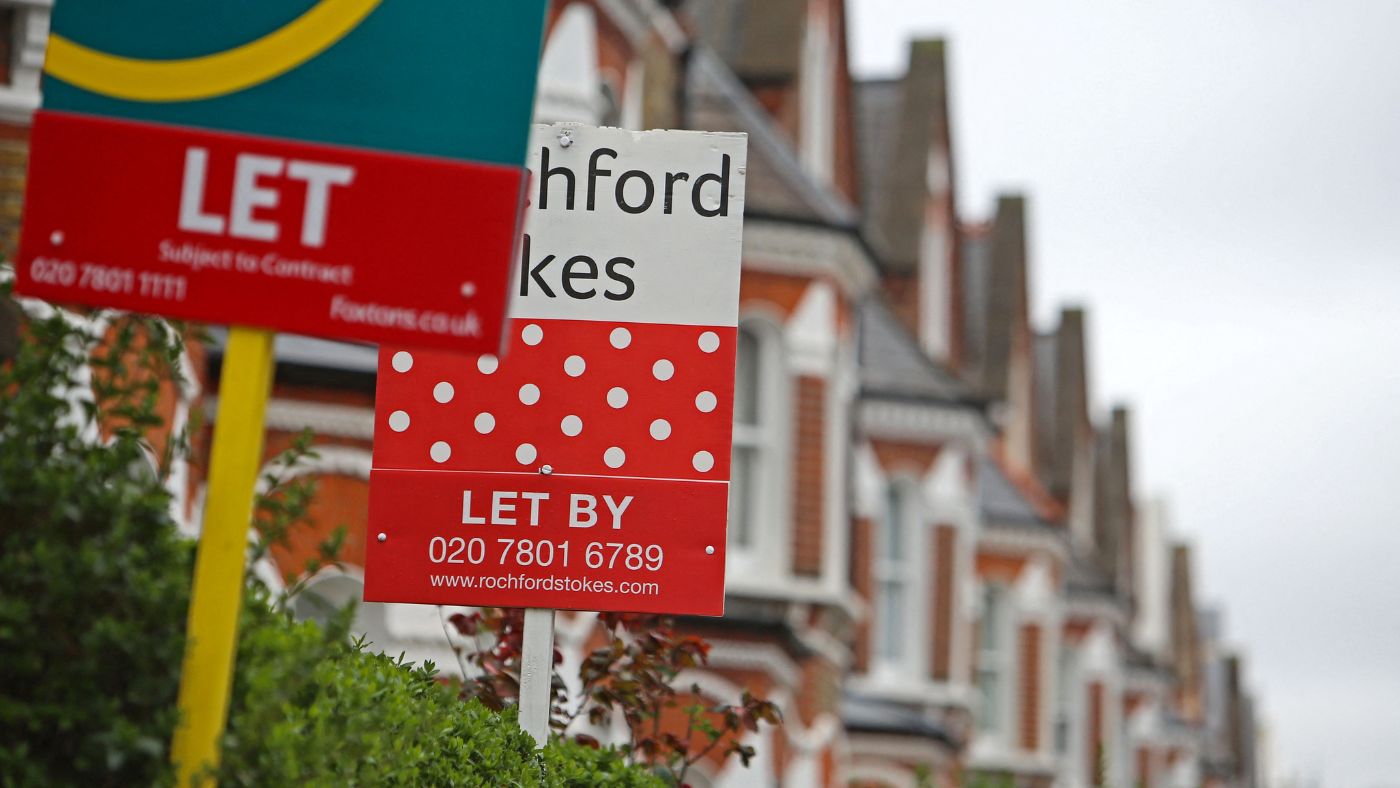Can ‘once-in-a-generation’ Renters’ Reform Bill fix private renting?
Bill to end ‘no-fault’ evictions has been cautiously welcomed by some landlords and campaigners

A free daily email with the biggest news stories of the day – and the best features from TheWeek.com
You are now subscribed
Your newsletter sign-up was successful
Long-awaited measures were introduced to parliament today to eliminate so-called no-fault evictions in a move that has been labelled a “once-in-a-generation” reform to private renting.
Housing Secretary Michael Gove said that the Renters’ Reform Bill will enable tenants to confront negligent landlords without facing the risk of losing their homes, while also empowering home owners to evict anti-social renters.
Additionally, a new ombudsman will be created to supervise disputes, and a digital “property portal” will be set up to help property managers better understand their responsibilities.
The Week
Escape your echo chamber. Get the facts behind the news, plus analysis from multiple perspectives.

Sign up for The Week's Free Newsletters
From our morning news briefing to a weekly Good News Newsletter, get the best of The Week delivered directly to your inbox.
From our morning news briefing to a weekly Good News Newsletter, get the best of The Week delivered directly to your inbox.
What did the papers say?
The main measure contained within the bill is the scrapping of “no-fault” evictions in England, said Sky News. No-fault – or Section 21 – evictions “allow landlords to take back possession from tenants without giving a reason”, the broadcaster explained.
“Too many renters are living in damp, unsafe, cold homes, powerless to put things right and with the threat of sudden eviction hanging over them,” Gove said.
However, after lobbying from landlords, Gove will also “strengthen powers to evict antisocial tenants, broadening the disruptive and harmful activities that can lead to eviction and making it quicker to evict a tenant acting antisocially”, his department said.
This could mean renters receiving a 14-day notice period for evictions related to antisocial behaviour and that any behaviour “capable” of “causing nuisance or annoyance” could trigger eviction.
A free daily email with the biggest news stories of the day – and the best features from TheWeek.com
The bill also prohibits excessive rent hikes specifically aimed at forcing tenants to vacate their properties, but it is anticipated to place restrictions on how frequently landlords can raise rents or set rent caps. Enforcement of the rules will be overseen by a newly appointed ombudsman for private rented housing, and the courts.
All these new measures have been a long time coming, said The Guardian. It is “four years” since the government first promised to ban the 1988 no-fault eviction law, which has had “a chilling effect” on tenants’ confidence to challenge their living conditions, the paper said.
In the absence of action since the manifesto pledge, more than 54,000 households in the private rented sector in England have been threatened with a no-fault eviction and almost 17,000 households have been evicted by bailiffs.
What next?
Some landlords have “expressed concerns” about the bill, the BBC said. Ben Beadle, chief executive of the National Residential Landlords Association, said landlords needed to be confident “they will be able to repossess their properties as quickly as possible” and “without this assurance, the bill will only exacerbate the rental housing supply crisis many tenants now face”.
He said he welcomed the measures on evicting anti-social tenants, but he added “more detail is needed if the bill is going to work as intended”.
According to The Telegraph, some Tory MPs also fear the bill could cause a “serious housing crisis” because it will force more landlords to sell up and reduce the pool of rented property.
The bill “comes after landlords have been squeezed by the removal of tax breaks and sky-high mortgage rates”, the paper said, and MPs, as well as campaigners and lenders, warn that tenants “will face surging rent bills as more landlords leave the market”.
Craig Mackinlay, Conservative MP for South Thanet in Kent, said: “The reality is, landlords will abandon the market and we will have a very serious housing crisis on our hands. I’m worried about landlords leaving the market, I really am. There’s a huge amount of disquiet about this. From colleagues I’m talking to, they’re not happy. We have seen too much of a war against landlords.”
Labour's Lisa Nandy, shadow levelling-up secretary, responded that Gove should not “roll over” to Conservative pressure, and should push the rental reform bill through.
As things stand, section 21 is “a leading cause of homelessness”, said the i news site. The homelessness charity Shelter found that at the end of last year the number of people served or threatened with an eviction notice was up 80% compared to 2021.
Consequently, the site said, “abolishing Section 21 of the 1988 Housing Act will protect renters”. However, “the bill could take years to make its way through Parliament so the change will not come into force overnight.”
Despite concern about how long the measures may take to come into force, the bill was cautiously welcomed by some campaign groups and landlords.
Dan Wilson Craw, from campaign group Generation Rent, said he was hopeful the reforms will improve “communication and trust” between tenants and landlords. The National Residential Landlords Association also welcomed the steps relating to anti-social evictions, City A.M. reported, though they added that the bill still “lacked important details”.
Arion McNicoll is a freelance writer at The Week Digital and was previously the UK website’s editor. He has also held senior editorial roles at CNN, The Times and The Sunday Times. Along with his writing work, he co-hosts “Today in History with The Retrospectors”, Rethink Audio’s flagship daily podcast, and is a regular panellist (and occasional stand-in host) on “The Week Unwrapped”. He is also a judge for The Publisher Podcast Awards.